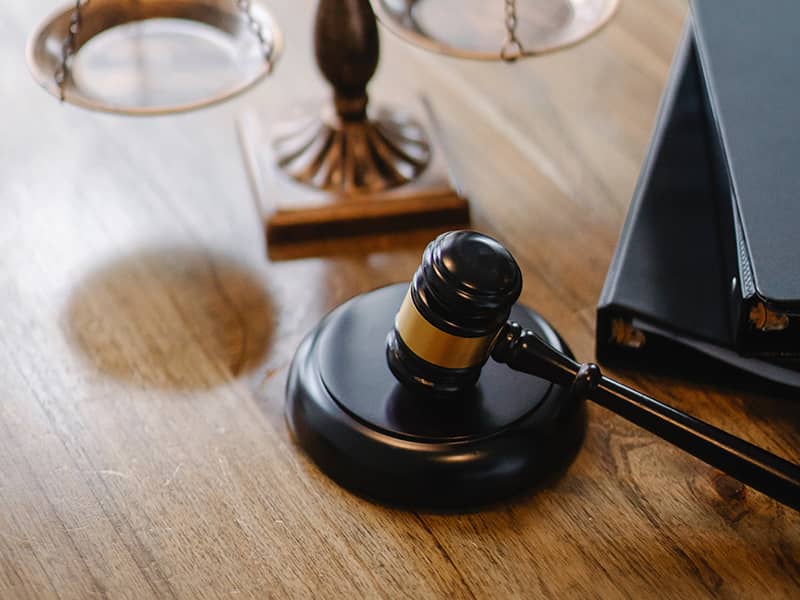Who Can Override a Power of Attorney (POA)?

A Power of Attorney (POA) is like a legal magic wand that lets someone step into your shoes and make decisions for you. It’s a core part of estate planning, coming to the rescue when you can no longer manage your own affairs, like for aging parents or loved ones with special needs.
But this document isn’t just for the big, life-altering stuff. It can also help when you’re traveling or otherwise not available, handing over the reins to someone you can count on.
But here’s the thing: this document isn’t all sunshine and rainbows. The one wielding the POA, we call them the agent, has some serious power. They can make decisions that stick, decisions that carry legal weight.
So, what if you need to swoop in and override that authority or revoke it altogether? Well, that answer depends on the type of POA and the principal’s health.
In this article, we’re diving deep into the realm of who can override a POA, decoding the scenarios where this document’s powers can be challenged or changed.
Need a tailored look into your POA or legal advice on how to move forward? Contact our estate planning attorneys at Stivers Law for a consultation today.
What is a Power of Attorney?
A power of attorney is a legal document that grants someone, known as the agent or attorney-in-fact, the authority to act on behalf of another person, known as the principal. The principal could be anyone, from a family member to a trusted friend or even a legal advisor.
This legal arrangement comes in various forms, depending on the specific circumstances and the type of decisions the principal wishes to delegate. The type of power of attorney chosen plays a significant role in defining the agent’s scope of authority.
There are several types of power of attorney documents, each tailored to address specific needs. These may include:
- A general power of attorney which grants broad decision-making powers
- A medical power of attorney that focuses on medical decisions
- A financial power of attorney that concentrates on financial matters
- A durable power of attorney remains effective even if the principal becomes incapacitated
Understanding the type of power of attorney that best suits your situation is essential to ensure that your interests and wishes are properly represented.
Who Has the Power to Override a Power of Attorney?
When it comes to overriding a power of attorney (POA), the ultimate authority lies with the principal—the individual who initially created the POA document.
Creating a power of attorney document does not strip the principal of their ability to make decisions independently, assuming they are mentally capable of doing so. Unlike guardianship, where decision-making authority is transferred entirely, a POA merely grants someone else the legal authority to act on the principal’s behalf. This means that, as long as the principal is of sound mind, they retain the ability to make their own choices.
As long as the principal is of sound mind, they hold the following powers with regard to their POA:
- Revoking a Power of Attorney: If the principal decides that it’s time to end the authority granted to their agent, they have the legal right to revoke the existing POA. This typically requires a written revocation document, ensuring clarity and documentation of the decision.
- Naming a New Agent: In addition to revoking a POA, the principal can also appoint a new agent in their revised power of attorney document. This allows them to choose someone they trust to act on their behalf.
- Creating a New Power of Attorney: Sometimes, the principal’s circumstances change, and they may want to create an entirely new POA. This is well within their rights as long as they are of sound mind.
However, it’s crucial to note that if a principal becomes incapacitated (unable to act on their own behalf) and a durable power of attorney is already in place, they lose the ability to override or revoke the POA document. This restriction is in place for the same reason that a person cannot establish a POA once they are incapacitated—legal documents require individuals to be of sound mind to create and execute them.
Who Else Could Override a Power of Attorney?
In addition to the principal, several individuals may have the authority to override a power of attorney under specific circumstances:
- Family Member: A family member may challenge or seek to override a power of attorney, but it’s crucial to note that this isn’t typically based on mere disagreement with the agent’s decisions. Instead, challenges often arise in situations involving fraud or abuse of the agent’s authority.
- Court-Appointed Guardian: When the principal is incapacitated and unable to make decisions, a court may appoint a guardian. This guardian has the authority to override a power of attorney, ensuring decisions align with the best interests of the incapacitated individual.
- Executor: After the principal’s passing, a designated executor takes charge of managing the deceased person’s estate. At this point, the power of attorney ceases to be valid, and the executor assumes responsibility for handling estate affairs.
These roles come into play under specific circumstances, providing safeguards to protect the principal’s interests and ensure that decisions are made appropriately.
Why Revoke a Power of Attorney?
Sometimes, there’s a need to take a step back and reassess the situation. A principal might revoke a power of attorney if they feel their agent is not acting in their best interests or is abusing their authority.
It’s a protective measure to ensure that the principal’s wishes and well-being are safeguarded.
Another scenario that may warrant revocation is the abuse of authority by the agent. If the agent is misusing their powers, engaging in fraud, or taking advantage of the principal’s trust, it’s crucial to put an end to this abuse promptly.
Revoking a POA is not a decision to be taken lightly, but it serves as a vital mechanism for the principal to assert their autonomy and protect their interests.
How to Revoke a Power of Attorney
The process of revoking a power of attorney isn’t overly complex, but it does require specific steps. Generally, it involves drafting a revocation document and ensuring it’s properly executed. This revocation should be shared with all relevant parties to prevent any misunderstandings.
If you find the need to override a power of attorney (POA), here’s a simplified guide on what to do:
- Talk to the Principal and Agent: Start by discussing the situation with the principal and the agent. If the principal is mentally capable, the easiest solution is for them to revoke the POA voluntarily.
- Consider Agent Transition: If the principal can’t revoke the POA, talk to the agent. They might agree to step down. If there’s an alternate agent named in the POA document, they can take over without legal complications.
- Court Petition as a Last Resort: If the agent refuses to step down, you may need to file a court petition. Provide clear reasons and supporting evidence for why the POA should be overridden. Keep in mind that courts are cautious about overriding a POA, as the principal chose the agent to act in their best interests.
- Court Decision and Transition: If the court decides to revoke the POA and an alternate agent is named, the court may transfer authority to them. However, depending on the situation, the court could also assign guardianship to another party.
Challenging a POA is complex, and seeking legal advice from an experienced attorney is highly recommended. They can guide you through the process, ensure proper procedures, and protect the principal’s interests throughout this legal journey.
When to Seek Legal Advice
Revoking a power of attorney is far from straightforward An estate planning attorney can guide you through the process and ensure all legal requirements are met.
Here are a few scenarios when seeking legal counsel is not just beneficial but highly advisable:
- Complex Situations: If the situation involving the POA is particularly intricate, such as disputes among family members or potential financial abuse, legal advice becomes critical.
- Agent Refusal: When the agent refuses to step down or relinquish their authority, and you believe it’s necessary to challenge the POA, consulting an attorney is a prudent step.
- Court Involvement: If you need to file a court petition to override the POA, it’s essential to have legal representation. The legal process can be challenging, and an attorney can ensure you follow the correct procedures.
- Principal’s Best Interests: Always consider the best interests of the principal. If you’re unsure about the impact of your actions on their well-being or assets, legal advice can provide clarity.
- Document Interpretation: Understanding the legal intricacies of the POA document is vital. An attorney can help you interpret its terms and navigate any complexities.
- Protecting Rights: If you believe that the principal’s rights are at risk or that the agent is not acting in their best interests, legal guidance is essential to protect those rights.
Bottom line: seeking legal advice is advisable when dealing with POA challenges that involve complex legal issues, disputes, or the potential for harm to the principal’s interests. An attorney can provide valuable insights, ensure proper procedures are followed, and safeguard the well-being of all parties involved.
Contact Stivers Law To Challenge a Power of Attorney
If you find yourself in a situation where challenging a power of attorney is necessary, don’t navigate this process alone. At Stivers Law, we focus on elder law and estate planning matters, and we’re here to assist you every step of the way.
Our attorneys can provide the legal guidance and support you need to protect the best interests of the principal and ensure a smooth resolution. Whether you’re facing disputes, concerns about abuse, or complex legal issues surrounding a POA, we can help.
Contact us today for a confidential consultation.



